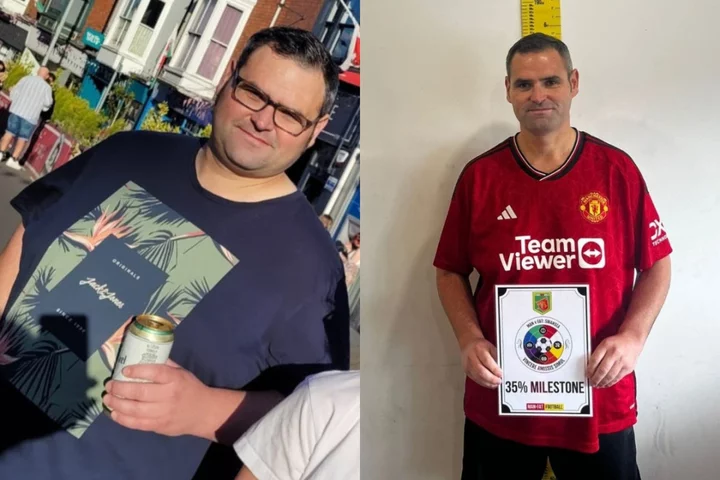
How did a man who dodged theme parks due to his weight lose nearly 60kg in under a year?
A man who “had anxiety all the time” because of his weight has lost more than 58.5kg after rediscovering his love of football and playing a weekly game of seven-a-side, and has now “gained a lot more confidence” and says his anxiety is “more controllable”. Kyle Bamford, 40, a scrap operative, who lives in Swansea, South Wales, with his wife Deborah, 41, and their three children, Caitlin, 18, Masie, 14, and Lola, 11, reached his heaviest weight in 2022, weighing around 161.5kg. At the time, he “suffered quite badly with depression”, “drank a lot”, comfort ate and even avoided socialising because he thought “people were judging (him)”. After coming across a friend’s social media post about Man V Fat, a weight loss programme that encourages overweight men to play football once a week, he had a “wake-up call” and decided to sign up. Since joining the club, in October 2022, Kyle has gone from a size XXXXXL to XL, lost 10 inches on his waist, and has lost 58.5kg – although, he still has to remind himself “that this is a big achievement”. Kyle admits that he still has “anxiety and nerves” but thinks it has got “a lot better” since losing weight. He has also noticed that the pain he was feeling “vanished overnight” and he can now do more things with his children – before, he was “too anxious” to go to theme parks with them as he was scared he could not fit on the rides. Kyle’s next goal is to get down to 99.9kg and he is considering playing football “competitively” once a week, as well as the weekly Man V Fat sessions. He told PA Real Life: “Before I lost weight, my wife said to me that when our kids grow up, I might not be able to do anything with them without getting out of breath. “I’d never go to theme parks, and I’d think of excuses because I was anxious of not fitting on the rides. “And now, I’ve got no problem with that. “My wife has also said that I’m more confident and she can notice that I’m happier too.” In early 2022, Kyle reached the heaviest weight he has ever been, weighing 161.5kg, with a BMI of 50.9 making him obese, and it began to take a toll on his mental health. He said: “I was just depressed and just had anxiety all the time. “I suffered quite badly with depression and I just drank a lot – eating was comforting more than anything. “I was quite anxious buying clothes and socialising, and I didn’t like seeing anyone from my past because I was smaller then. “I hated going to parties and things like that because I thought people were judging me.” In October 2022, one of his friends posted on Facebook about a weight loss programme called Man V Fat which involves overweight men playing football once a week. Kyle said: “I always enjoyed football and sports, and when I put the weight on, I fell out of love with it and lost interest in it. “When I saw my friend’s progress on Facebook, I couldn’t believe how much he had lost. “I signed up to Man V Fat when I was drunk and completely forgot about it. “When I got the call from them, I had a bit of anxiety and it was a bit of a shock but once I considered it, it felt like a wake-up call that I had to do something about my weight.” The following week, Kyle went to his first football session. He explained how the programme works: “At the start of the season, you register your weight and then you get weighed every week from then on. “You’re on a football team, and that gives you an incentive to lose weight because you play a 28-minute game of football, and if you have not lost weight, the other team gets points. “If you have lost weight, your team gets penalties.” After attending a few sessions, Kyle began to notice a difference in his weight and made small changes in his diet. He said: “My wife and I are very fussy, we like all the bad stuff really, to be honest. “But one thing I did do is cut out takeaways and pop, and I did see a big difference with just those two changes. “My guilty pleasure was on a weekend, after heavy drinking, I would order a takeaway, but I stopped doing that.” Kyle also started to track his calories on the MyFitnessPal app, and the more he lost, the more motivated he felt. He explained: “I stuck to MyFitnessPal religiously, and I think within the first month of joining Man V Fat, I was looking for excuses to quit. “I had all the negative thoughts go through my head, but I did stick at it. “I stepped on the scales a couple of weeks at a time, and I noticed my weight was dropping. “Something clicked in my head and I wanted to see how far I could go.” After 10 months of weekly football sessions and sticking to a calorie deficit, and now starting to go to the gym six times a week, Kyle has lost 58.5kg and is now 103.5kg. He said: “I always put myself down, and I have to remind myself that this is a big achievement. “I feel like I’ve gained a lot more confidence, but I still suffer with anxiety and nerves, but it’s a lot better and it’s a lot more controllable now. “I did suffer a lot of pain before I lost weight and it vanished overnight. “Now I go to parties and I definitely come out of my shell more easily.” Looking to the future, Kyle’s next goal is to get his weight down to double figures. He said: “I think 99.9kg is my goal – it will be hard but I think I can do it. “Now I’m back playing football I’m actually enjoying it again, and I’m looking to start playing competitively on a Saturday. “So at the age of 40, I think that is an achievement in itself because I feel like I can do it again.” Read More ‘I felt like a freak’: Woman’s bullying over skin blistering disorder Daniel Radcliffe credits his parents for helping him stay in shape What are the symptoms of prostate cancer and how common is it? ‘I felt like a freak’: Woman’s bullying over skin blistering disorder Daniel Radcliffe credits his parents for helping him stay in shape What are the symptoms of prostate cancer and how common is it?
2023-09-01 22:55
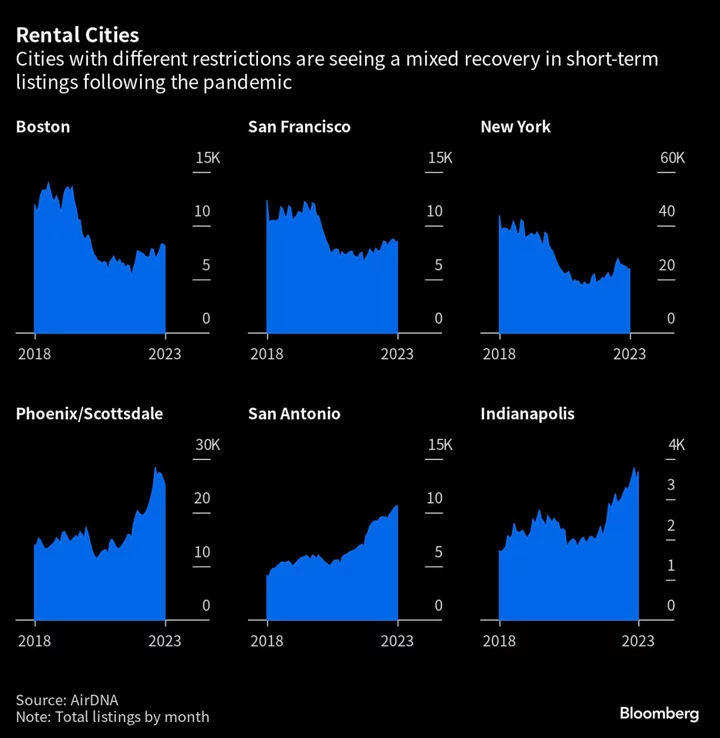
Crackdown on Airbnb Hosts Spurs Lawsuits, Losses, Longer Stays
Legal and regulatory hurdles for people offering their homes for short-term rental on sites like Airbnb Inc. and
2023-09-01 22:50

Best AT&T Labor Day Phone Deals: Apple iPhone 14 Pro from $0 Per Month With Select Trade-in
Getting a little tired of your phone? Thinking about trading up for something a little
2023-09-01 22:15

What’s Trending Today: Murder Suspect Escapes, Disney/Charter Dispute
Welcome to Social Buzz, a daily column looking at what’s trending on social media platforms. I’m Caitlin Fichtel,
2023-09-01 21:23
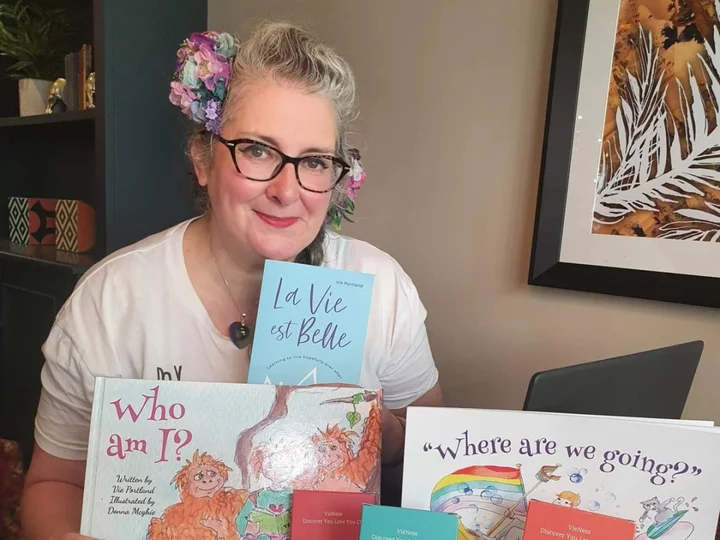
Woman bullied over skin blistering disorder writing books to stop other children ‘feeling like freaks’
A woman who was born with a rare inherited skin blistering disorder which caused her to get “bullied” and feel “like a freak” throughout her childhood and teenage years, as well as forcing her onto a soft food diet of “bananas and custard” for weeks at a time, now writes inclusive children’s books with a focus on disability to encourage “other children to grow up with confidence”. Vie Portland, a 52-year-old confidence coach, author and speaker from Winchester, was born with epidermolysis bullosa simplex generalised intermediate but was not formally diagnosed with the skin condition until she was 28. According to the NHS, epidermolysis bullosa (EB) is a rare inherited skin disorder that causes the skin to become very fragile, and any trauma or friction to the skin can cause painful blisters. Vie is yet to find a treatment that helps her condition, and her feet are regularly covered with huge internal blisters which feel like she has “stones under (her) skin.” Her condition even means that she cannot eat “anything acidic or too peppery” and often spends weeks eating “just bananas and custard”. She has also developed thoracic outlet syndrome, chronic bursitis, and often has spasms, because of walking with a limp to try to ease the pain. Now, Vie writes inclusive children’s books to raise awareness about living with a disability, because she grew up “afraid that there was no one else like (her)”, and hopes to write a book about someone with her condition next. Vie told PA Real Life: “So it feels like I’ve got stones under my skin all the time on my feet and it doesn’t matter how much you try to explain that to someone people just don’t get it. “Even things like if I meet friends for a drink in a lovely pub garden – I’ll be in agony because of walking on gravel and it takes so much energy out of me. “I can’t eat anything acidic or too peppery – sometimes I have to eat just bananas and custard for weeks.” Vie was born with the skin condition, saying: “I was born with no skin on my bottom and had some skin missing on my left foot. “The charity that works with people that have EB wasn’t around then – I spoke to someone recently from Debra, the charity, and they said if you looked at all the people on a double-decker bus, you’d expect to find at least one person with psoriasis. “But, you’d have to wait for over 700 buses before you met someone with EB.” As a child, Vie regularly had huge blisters all over her feet and the back of her heels. She explained: “I remember wearing jelly shoes one summer, and heat and friction are two of my triggers. “Throughout the day, blisters grew around the rubber shoes and I had to have the pair of shoes cut off my feet – it was excruciating.” When Vie was a teenager, she was very self-conscious of her condition, she explained: “I was in constant pain, and I struggled with all shoes and walking anywhere. “We’re always told not to pop blisters, but when you have EB they tell you to pop them because they get so big. “I didn’t know that at the time and it was just so painful. “People were noticing how I walk and I was embarrassed to show my feet – I didn’t have a normal childhood because of this. “Even something as simple as opening a bottle makes several layers of skin come off and cause me to have raw skin all over my hands, I was told this was weird by other people.” Doctors were baffled by Vie’s condition, over the years, she was told she had different types of eczema and even that she was allergic to her own sweat. But, at age 28, she was diagnosed with EB by a dermatologist in London. She said: “I just grew up believing that it was my fault and I was afraid that there was no one else like me.” “It all just made sense. “They even took pictures of my feet for a medical journal because it was so rare.” After getting her diagnosis, Vie began researching the charity DEBRA, which specialises in EB. She said: “I started finding out that there were people like me – it was amazing, growing up, I was bullied and felt like a freak.” Since then, Vie has sadly not been able to find a treatment that helps her condition. “There’s no cure for EB but things have moved on a lot over the past 20 years,” she said. “We have special types of dressings and creams which can help alleviate the pain.” On top of this, because Vie has been walking “unusually” for most of her life, she has developed thoracic outlet syndrome, chronic bursitis, and often has spasms. Vie said: “It can be frustrating at times because it just feels like no one will ever understand what it is like. “For most people, blisters are a bit painful, but it’s all right, but for me, it’s one of the worst pains in the world.” Now, Vie is focussing on raising awareness about living with a disability, and has recently written two inclusive children’s books called ‘Where Are We Going?’ and ‘Who Am I?’. She said: “I want other children to grow up with confidence and not to feel like a freak like me. “Children aren’t born with prejudice and I think it’s really important to teach them about all of our amazing cultures and worlds. “In my books, I don’t explicitly say the character is disabled until the discussion questions at the end – I want the character to be accepted and not defined by their disability. “I think people have more in common with each other than things that are different, and that’s a beautiful thing. “I’m hoping to write a book about someone with my condition – that’s my next plan.” Read More Charity boss speaks out over ‘traumatic’ encounter with royal aide Ukraine war’s heaviest fight rages in east - follow live Fraser Franks undergoing heart surgery – four years after ‘hidden’ condition cut short football career 4 viral TikTok make-up trends you’ll actually want to try Childhood Cancer Awareness Month: What are the warning signs that your child might have cancer?
2023-09-01 21:15

Tesla’s $41,000 Model X Discount Unlocks Subsidies Musk Wanted Gone
Tesla Inc.’s latest discounts will newly qualify one of its models for federal subsidies that Elon Musk said
2023-09-01 20:24
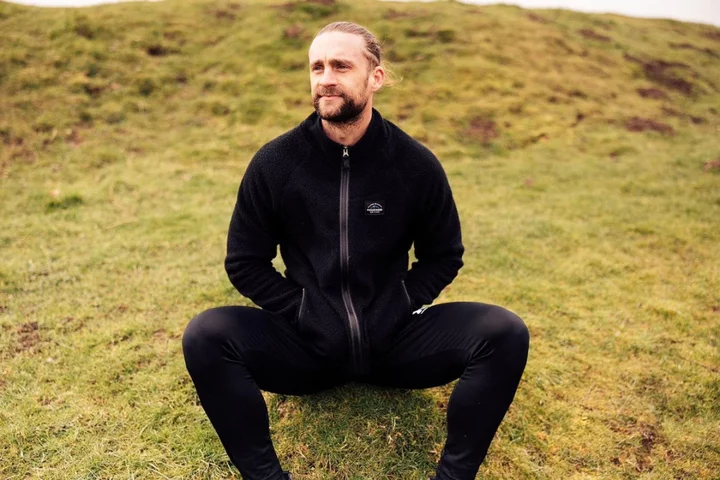
Fraser Franks undergoing heart surgery – four years after ‘hidden’ condition cut short football career
Former Newport defender Fraser Franks faced a difficult “grieving process” when a heart problem cut short his football career at age 28. But four years on, as he prepares for surgery that will ultimately save his life, he is “grateful” the condition was picked up early – as many people aren’t even aware they’re at risk. “I’ll be having a mechanical valve fitted and work done on my aorta,” Franks, now 32, told PA Media. His surgery is set for September 4. “It is a big operation and I’ll be in hospital for about 10 days. And the recovery after, I won’t be able to lift anything, even a bag of shopping, for two to three months. With a four-year-old daughter, that’s going to be difficult for me and her,” added Franks, who shares daughter Nellie with his wife, former S Club 8 singer Stacey McClean. “It’s been a lot to get my head around. There will be certain things I can’t do afterwards and a lot of lifestyle adjustments, but I’m really happy and content with it. I’m grateful that this has been found and that there’s a solution for me, where unfortunately a lot of people haven’t got that. “I’ve had conversations with cardiologists and surgeons [who’ve said] this is going to save my life, I probably wouldn’t live much longer with the heart I’ve currently got. So I’m really grateful for that, and it’s only through playing for a professional football club that this was picked up.” Franks was born with a bicuspid valve – meaning his aortic valve, which helps control blood flow in the heart, had two cusps (flaps) instead of the usual three. The condition is believed to affect around one in every 100 people, but it often doesn’t cause symptoms and only becomes serious if the valve begins to leak or develops severe narrowing (aortic stenosis), which is what has happened in Franks’ case. A routine medical at 16 first picked up the defect. Franks, who signed with Chelsea at age eight, had always been fit and healthy, but when he signed with Brentford at 16, like all players joining pro clubs he was given a heart scan. Further investigations revealed the bicuspid valve, but because it wasn’t causing problems, he was given the green light to continue as normal. Franks carried on, trying not to give it too much thought – until at 28, he suddenly started feeling unwell after a game and was rushed to hospital the next day, worried he was having a heart attack. “I wasn’t having a heart attack or anything like that, but I contracted an infection. While I was in there though, I told them I’d had this heart issue when I was 16, so they scanned me and saw the condition had worsened,” he recalled. “I’d developed aortic stenosis and the valve was leaking a lot more. Then it was deemed unsafe for me to carry on playing football, so I had to stop playing there and then.” London-born Franks has teamed up with the British Heart Foundation for their September Spotlight campaign, which aims to shine a spotlight on hidden heart conditions. His story highlights how heart problems can potentially affect anyone – including those who are young and seemingly very fit and healthy. Even when symptoms are mild or barely noticeable, undetected issues could become serious and even life-threatening, which is why research and awareness are so vital. Plus, as Franks has experienced, there are complex layers and emotional challenges to living with a hidden heart condition too. Being forced to suddenly retire early when he’d previously felt fine – and still looked well on the outside – was tough. “Ever since age eight, I’d been known as ‘the footballer’. It had been my whole identity, so to retire at 28 out of the blue was difficult,” Franks explained. “I think I kidded myself in the first six months, where I was saying, ‘Yeah I’m fine, I’m enjoying retirement and all that good stuff’. But I was really struggling and drinking heavily. “I reached out and got some help and had to do a lot of therapy. It really is a grieving process, and I had to figure out who I was and what I enjoyed away from being ‘the athlete’. “And I didn’t play at the top level, so I didn’t have savings in the bank – I had to pretty much get to work straight away and earn a living. My wife was heavily pregnant then too, so there was a lot of stress and overwhelm at that period.” Yoga and meditation also proved a huge help in coming to terms with everything, and Franks has since found a new sense of purpose, channelling his experiences into helping others. “I do a lot of work around addiction and alcohol now, because I really struggled with those things. That’s become a big part of what I do now, helping people who want to transition away from sport, and working with young athletes on addiction and mental health.” He took up yoga as a gentle form of exercise when doctors told him strenuous sport was too risky. “I just completely fell in love with it,” Franks added. “I’ve found a real passion for it. It’s actually a goal of mine now – it’s going to be something I’ll be thinking about when I’m in hospital – when I’m healed, I want to go to India or Bali and actually earn a qualification and get trained as a yoga teacher. “Instead of focusing on all the things I’m unable to do, that’s something I will be able to do. That brings me a lot of comfort.” This September, the BHF is shining a spotlight on hidden heart conditions and urging everyone to get involved by supporting the charity however they can, with stories, stuff, time or money. Visit spotlighton.bhf.org.uk Read More Charity boss speaks out over ‘traumatic’ encounter with royal aide Ukraine war’s heaviest fight rages in east - follow live 4 viral TikTok make-up trends you’ll actually want to try Childhood Cancer Awareness Month: What are the warning signs that your child might have cancer? How students heading to university can save some cash and budget wisely
2023-09-01 20:19

NFTs, Once Hyped as the Next Big Thing, Now Face ‘Worst Moment’
NFTs first crossed Daniel Maegaard’s radar in 2018. He started investing in the tokens in 2019 and by
2023-09-01 18:46
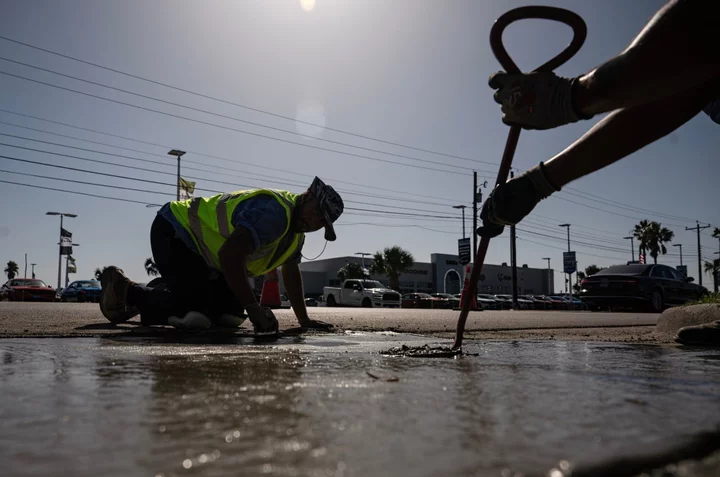
Startups Are Inventing Cooling Clothes for a Hotter Future
Every morning, thousands of construction workers in Qatar start their day by soaking their uniforms in water. The
2023-09-01 18:45

Liam Gallagher’s new Adidas collab!
Liam Gallagher has partnered with Adidas to launch a new colourway of Gary Aspden's Spezial.
2023-09-01 18:45

Childhood Cancer Awareness Month: What are the warning signs that your child might have cancer?
It’s heart-breaking to see a child that’s seriously ill, particularly when they’ve got cancer and might not survive. But children do get the disease – and it’s being highlighted during September’s Childhood Cancer Awareness Month. Fortunately, it’s not common. But every day in the UK, 10 families receive a cancer diagnosis for their child, teenager or young adult, and it’s the leading cause of death in children under 14, according to the charity Children With Cancer UK (CWCUK). However, Jeanette Hawkins, chief nurse at the Children’s Cancer and Leukaemia Group (funded by Young Lives vs Cancer), stresses that childhood cancer isn’t as rare as people might think, with a similar risk as diabetes, epilepsy and bacterial meningitis. “Use of the word rare for childhood cancer is a barrier to diagnosis as both GPs and parents therefore don’t consider it’s possible,” she explains. “Families, on average, have three to five GP visits before cancer is suspected. We need to reduce that by increasing awareness. Remember that childhood cancer is often a constellation of non-specific persistent symptoms, rather than a single ‘red flag’ that would alert a GP. “If you’re worried about your child keep going back.” Christiana Ogunbote, head of research at CWCUK, says childhood cancer accounts for less than 1% of all cancers in the UK, and explains there are 12 main categories of cancers affecting children, with the most common being leukaemia (30%), brain, central nervous system (CNS), intracranial tumours (26%) and lymphomas (11%). Ogunbote says cancer symptoms in children can vary widely depending on the cancer type and where it is in the body, but points out: “Often the individual symptoms of cancer can be similar to common childhood illnesses, so it can be hard to identify. “If a symptom progresses or doesn’t get better as quickly as expected, we would suggest getting it checked out by a medical professional. It’s useful for parents who know what’s ‘normal’ for their child to be aware of the signs and symptoms of cancer, as earlier diagnosis will support better outcomes for children and young people.” Here, Ogunbote outlines the symptoms of the three most common childhood cancers… 1. Leukaemia Symptoms of leukaemia in children and babies, which may be acute myeloid or acute lymphoblastic leukaemia (ALL), can include frequent and persistent infections, unusual bleeding and/or bruising, tiredness, paleness, breathlessness and, with ALL, coughing and anaemia. “Childhood leukaemia develops quickly,” says Ogunbote. “but it’s possible for some or all of these symptoms to be apparent.” She says a leukaemia diagnosis can be made from a blood test, which may reveal low numbers of normal white blood cells and large numbers of abnormal white blood cells. Further tests will then be done on a sample of bone marrow to confirm the diagnosis. 2. Brain and spinal tumours The symptoms of brain and spinal tumours (central nervous system tumours) vary between age groups, says Ogunbote, but symptoms in babies may include persistent/recurrent vomiting, balance/co-ordination/walking problems, abnormal eye movements or suspected loss of vision, behaviour change (particularly lethargy), fits or seizures (not with a fever), abnormal head position such as head tilt or stiff neck, and increasing head circumference. Children’s brain tumour symptoms are similar to symptoms in babies, but may also include a persistent/recurrent headache, blurred or double vision, fits or seizures, reduced consciousness and abnormal growth. Ogunbote says symptoms vary depending on the type and site of the tumour, and develop much more slowly with low grade tumours. But she stresses: “It’s important to remember that many of these symptoms are extremely common, and experiencing one by itself is rarely a sign of a brain tumour.” A CT or MRI scan will be done if a brain tumour is suspected, and if the scan confirms the diagnosis, further investigations will determine the type of tumour and best treatment. 3. Lymphoma Children may get a cancer of the lymphatic system known as either Hodgkin or non-Hodgkin lymphoma, and Ogunbote says symptoms of both include a persistent (lasting a few weeks) painless swelling of a single lymph gland, usually in the neck, or possibly in the armpit or groin with non-Hodgkin, a cough or breathlessness (if glands in the chest are affected), fevers, sweats, and weight loss. There may be itching with Hodgkin lymphoma, and with non-Hodgkin there may be tiredness, feeling full after a small meal, stomach pains (if abdominal lymph glands are affected), and sleep sweats. Diagnosis is confirmed by removing part or all of an affected lymph gland, usually under general anaesthetic, and doing a biopsy on it so the cells can be examined in a laboratory. Further tests, like x-rays, CT and MRI scans and blood tests, will also be carried out to determine the size and position of the lymphoma and whether it has spread. This is known as staging. “Many of the symptoms of lymphoma can also be symptoms of other illnesses, so this can make it difficult to diagnose,” explains Ogunbote. “Symptoms your child might experience depend on where the lymphoma is in their body, and symptoms vary from child to child, even if they have the same type of lymphoma.” Read More Charity boss speaks out over ‘traumatic’ encounter with royal aide Ukraine war’s heaviest fight rages in east - follow live 4 viral TikTok make-up trends you’ll actually want to try Daily aspirin dose could help prevent diabetes in older people – researchers Secondhand September: The best places to buy pre-loved fashion online
2023-09-01 16:21
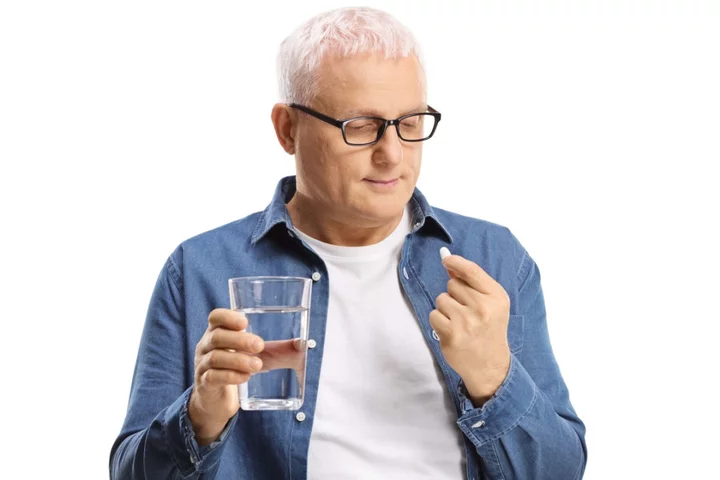
Daily aspirin dose could help prevent diabetes in older people – researchers
Taking 100mg of aspirin every day could lower the risk of people aged 65 and over developing type 2 diabetes, researchers have suggested. Scientists – led by Professor Sophia Zoungas of Monash University’s School of Public Health and Preventive Medicine in Melbourne – said their findings warrant further exploration but do not change the current clinical guidelines on older people taking aspirin. Some 16,209 people were included in the study; 8,086 were given aspirin while 8,123 were given a placebo. All were aged 65 or over and did not suffer from cardiovascular disease, physical disabilities or dementia. Although these new findings are of interest, they do not change the clinical advice about aspirin use in older people at this time Prof Zoungas Over a median follow-up of 4.7 years, researchers found the group given aspirin had a 15% reduction in type 2 diabetes and a slower rate of increase in fasting plasma glucose (FPG) levels. The authors said: “Given the increasing prevalence of type 2 diabetes among older adults, the potential for anti-inflammatory agents like aspirin to prevent type 2 diabetes or improve glucose levels needs further study.” The findings will be presented to delegates at the annual meeting of the European Association for the Study of Diabetes (EASD) in Hamburg in October. However, the study was a follow-up of the ASPREE trial, which was published in 2018. It found taking aspirin led to a 38% increased risk of major haemorrhage in older adults without any reduction in incidence of cardiovascular disease. Prof Zoungas said her team’s research does “not change clinical advice” around older people taking aspirin. According to the NHS, a low-dose of aspirin – 75mg – each day can help to prevent heart attacks and strokes in people who are at high risk of them, but should only be taken if your doctor recommends it. Prof Zoungas added: “The earlier published trial findings from ASPREE in 2018 showed aspirin did not prolong healthy independent living, but was associated with a significantly increased risk of bleeding, primarily in the gastrointestinal tract. “Major prescribing guidelines now recommend older adults take daily aspirin only when there is a medical reason to do so, such as after a heart attack. “Although these new findings are of interest, they do not change the clinical advice about aspirin use in older people at this time.” In June, a paper published in The Lancet Diabetes and Endocrinology journal claimed 1.3 billion people could be living with diabetes by 2050 – more than double the 529 million cases in 2021. Academics described the condition as one of the “biggest public health threats of our time”. However, Dr Faye Riley, research communications manager at Diabetes UK, said the link between aspirin and diabetes prevention “remains unclear”. She added: “With more than 2.4 million people in the UK at high risk of type 2 diabetes, there’s an urgent need to find new and better ways to help people avoid the condition. “While this research found that taking a daily low-dose aspirin was linked to a small decrease in risk of type 2 diabetes in older people, whether aspirin has a role to play in type 2 prevention remains unclear, and this approach may have unwanted side effects. “We know the use of daily aspirin increases risk of potentially serious bleeding in people with diabetes and others, so we advise only taking daily low-dose aspirin if your doctor recommends it and they will discuss exactly what dose is right for you. “We do know the best ways to reduce your risk of type 2 are getting support to lose weight if you need to, eating a healthy, balanced diet and doing more physical activity. “ Read More Charity boss speaks out over ‘traumatic’ encounter with royal aide Ukraine war’s heaviest fight rages in east - follow live Secondhand September: The best places to buy pre-loved fashion online What are gynaecological cancers and how can you prevent them? Alzheimer’s: How and when to talk to someone about their memory loss
2023-09-01 15:49
